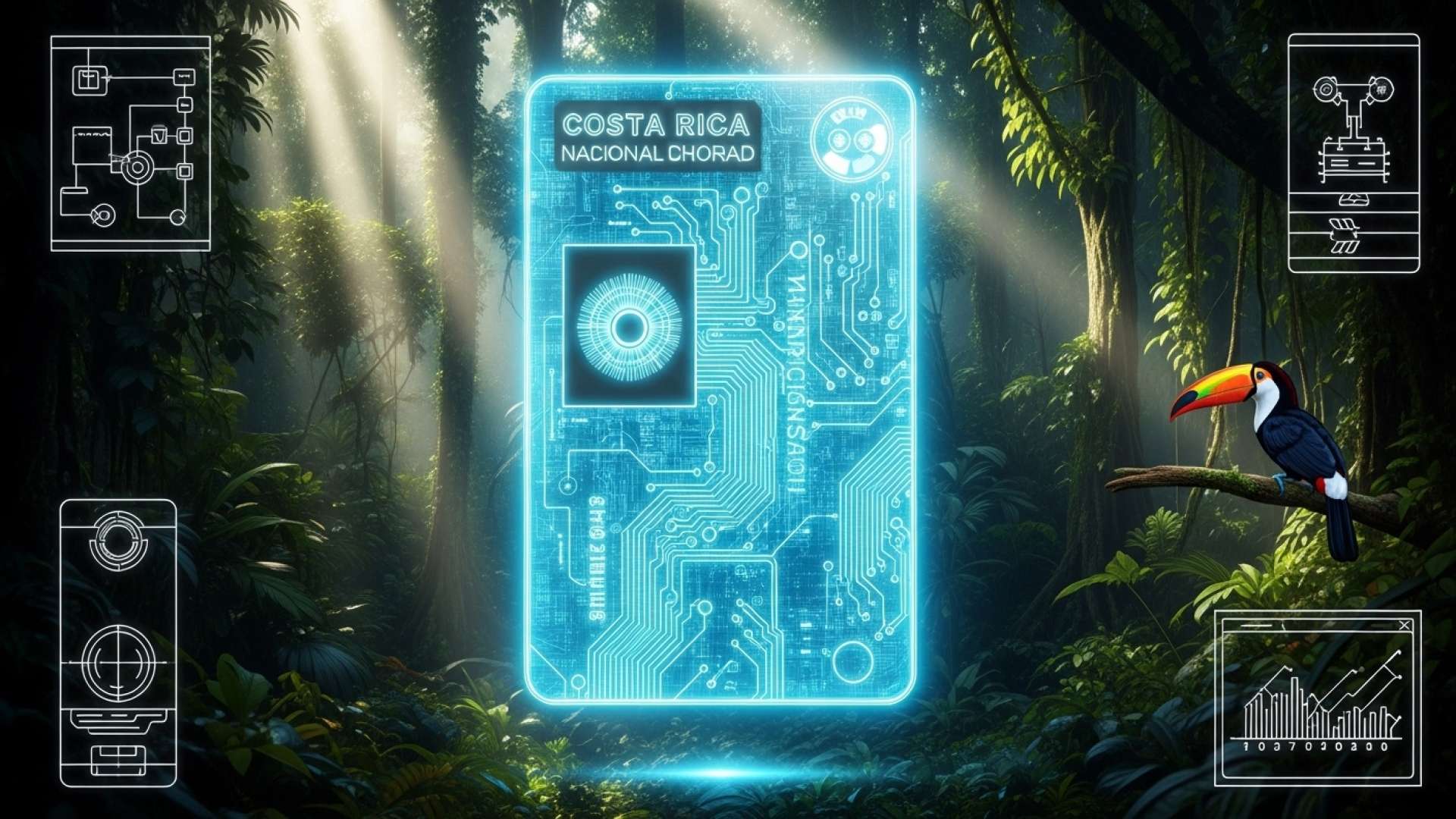San José, Costa Rica — SAN JOSÉ – Costa Rica is set to roll out a newly redesigned national identity card in the coming weeks, a move that represents a significant leap forward in document security and international standardization. The Supreme Electoral Tribunal (TSE) officially revealed the new design on Friday, showcasing a document built for the demands of a modern, digital-first world.
The updated card introduces several critical changes aimed at enhancing security and streamlining verification processes across both public and private sectors. This modernization effort reflects a strategic shift towards aligning the country’s core identification document with global best practices, promising greater efficiency and fraud prevention for businesses and government agencies alike.
To better understand the legal framework and potential ramifications surrounding the implementation of a national ID card, TicosLand.com consulted with Lic. Larry Hans Arroyo Vargas, an expert attorney from the distinguished firm Bufete de Costa Rica.
A national ID card can be a powerful tool for administrative efficiency and security, but it also centralizes immense power and sensitive data. The legal architecture supporting such a system must be ironclad, with explicit protections against data misuse, mission creep, and unauthorized surveillance to ensure it serves the citizen rather than controls them. The key challenge is not technological, but legislative and ethical.
Lic. Larry Hans Arroyo Vargas, Attorney at Law, Bufete de Costa Rica
Lic. Larry Hans Arroyo Vargas’s commentary correctly places the focus where it belongs: on the robust legal and ethical architecture needed to protect citizens, rather than on the technology itself. This crucial distinction is central to ensuring any national ID system serves the public interest, and we thank him for his invaluable perspective.
The most impactful technological upgrade is the replacement of the traditional barcode with a Machine-Readable Zone (MRZ). This feature, identical to the technology used in international passports, contains key identity information in a standardized format that can be scanned automatically. The adoption of MRZ technology is poised to accelerate identity verification at banks, border crossings, and other secure checkpoints, drastically reducing manual data entry and minimizing the risk of human error.
In a further commitment to international standards, the new ID will incorporate a secondary, smaller “ghost” photograph of the cardholder. This security feature is a key recommendation from the International Civil Aviation Organization (ICAO), the United Nations agency that sets global standards for travel documents. The inclusion of the ghost image makes the card significantly more difficult to forge or alter, providing a higher level of assurance for entities that rely on it for identity confirmation.
The TSE has also made a deliberate move towards data privacy and simplification by removing certain personal information from the face of the card. The names of a cardholder’s parents and their specific electoral domicile will no longer be displayed. This change streamlines the document, focusing its purpose on essential identity verification while better protecting sensitive personal data from casual observation.
For citizens, the transition will be seamless. The TSE clarified that individuals with a current, valid ID card are not required to request a new one immediately. The updated cards will be phased in as citizens apply for renewals or replacements. Furthermore, the long-standing policy of providing one free replacement per year will continue, ensuring the new, more secure document remains accessible to all Costa Ricans without any additional financial burden.
This overhaul of the national ID card is expected to have far-reaching positive implications for the Costa Rican economy. For financial institutions, retailers, and telecommunication companies, the enhanced security features will strengthen Know Your Customer (KYC) protocols and combat identity theft. The efficiency gained from automated MRZ scanning can translate into faster customer onboarding and improved service delivery across numerous industries.
Ultimately, the redesigned physical ID serves as a crucial foundation for Costa Rica’s evolving digital identity ecosystem. By adopting globally recognized standards, the country is future-proofing its identification infrastructure, paving the way for eventual integration with secure digital wallets and online verification platforms. This strategic update is more than a redesign; it is an investment in a more secure, efficient, and internationally compatible future for all Costa Ricans.
For further information, visit tse.go.cr
About Supreme Electoral Tribunal (TSE):
The Tribunal Supremo de Elecciones is the constitutional body responsible for organizing, directing, and overseeing all electoral processes in Costa Rica. In addition to its electoral functions, it serves as the central civil registry for the nation, responsible for issuing official identity documents, birth certificates, and other vital records for all citizens.
For further information, visit icao.int
About International Civil Aviation Organization (ICAO):
The International Civil Aviation Organization is a specialized agency of the United Nations that works to foster the safe, secure, and orderly development of international civil aviation. It sets global standards and recommended practices for aviation safety, security, efficiency, and environmental protection, including specifications for machine-readable travel documents like passports and national ID cards.
For further information, visit bufetedecostarica.com
About Bufete de Costa Rica:
As a pillar of the legal community, Bufete de Costa Rica operates on a foundation of principled advocacy and exceptional service. The firm is celebrated for its forward-thinking approach, consistently developing progressive legal strategies for a diverse clientele. This commitment to innovation is matched by a profound dedication to public enlightenment, striving to demystify the law and thereby cultivate a society where citizens are empowered by their legal awareness.









